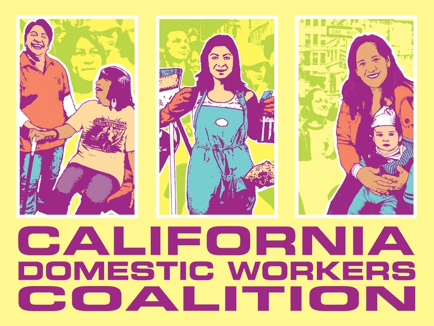One year into the pandemic, California Domestic Workers continue to work on the frontlines of this crisis, ensuring that vulnerable seniors and other people susceptible to the illness stay safe, home, and out of a strained medical system. However, domestic workers themselves remain excluded from even the most basic health and safety protections, which means they have remained vulnerable to COVID-19 as they continue to work without protections or safety standards. In response, on Wednesday, March 10th, domestic worker leaders held a virtual press conference to announce the launch of a campaign to pass Senate Bill 321 authored by Senator Durazo, the Health and Safety for all Workers Act, which would end the exclusion of domestic workers from protections granted by the California Occupational Safety and Health Act of 1973. Domestic workers and other household workers, like day laborers, are the only workers not protected by the Division of Occupational Safety and Health, better known as CAL/OSHA. The press conference was transmitted on Facebook Live to an audience of over 300 domestic workers, employers, supporters and their allies, who participated in the digital action, sharing the stories of domestic workers and expressing why they support the bill.
Cristina Ragas, a leader at the Filipino Advocates for Justice in Oakland, started off the press conference sharing what it has been like for home attendants like her to navigate the COVID-19 pandemic while still excluded from health and safety regulations at the workplace. “Almost one year ago, when the COVID-19 pandemic started, I decided to stop working because I have underlying health conditions that put me at special risk. About six months ago, I had to go back to work part time where I assist a 90 year old elderly with everyday activities because he can’t move without an attendant…I’ve been scared to work because as domestic workers we are still not included in any of the critical health and safety standards that protect all other workers.” said Ragas. “I’ve heard of stories where other employers don’t let workers know about positive cases in their homes until too late, or they don’t provide them critical personal protective equipment. Together we are organizing for our safety and our families, as well as for the safety of our clients and their families.”
The bill’s author, Senator Maria Elena Durazo (D-Senate District 24) also spoke about why she is moving this legislation. “Domestic workers, who are primarily immigrant women, have been denied basic health and safety protections for far too long,” said Senator Durazo. “This exclusion has life or death consequences for workers in normal times, but especially in times of crisis like we are in now with COVID-19. We need to treat domestic workers as essential workers — the caretakers for our disabled and elderly, the nannies for our children, and the house cleaners in our homes. Their work makes it possible for others to do their jobs.”
At the press conference, Vicenta Martinez, a leader of IDEPSCA, a domestic worker-led organization in Los Angeles, talked about the health and safety risks she has faced working as a house cleaner during the wildfires in California. “I had a very bad experience cleaning a house during the fires in the Malibu area. I cleaned inside and outside and felt the heat of the fire because the fires were burning in this area. I was working as usual even though the fires were close.” said Martinez. “My employers did not give me a mask or gloves, so I was working without protection. I was afraid to tell them I didn’t want to clean outside because the fire was nearby and there was a lot of ash and smoke. I thought they would fire me if I complained. I spent 3 weeks working under these conditions and it gave me a sore throat, and terrible irritation in my eyes.”
This legislative campaign seeks to provide protections for hundreds of thousands of California families and builds on over a decade of worker-led advocacy by the California Domestic Workers Coalition and its allies. There are over 300,000 domestic workers who work as housekeepers, nannies, and caregivers in private homes in California.The bill’s co-sponsors include the California Immigration Policy Center, California Employment Lawyers Association, Equal Rights Advocates and Worksafe.
“We spent an entire year hearing about how essential care work is. And yet, domestic workers still do not have basic health and safety protections,” stated California Domestic Workers Coalition Director Kimberly Alvarenga. “This is a decades long exclusion rooted in the legacy of slavery in our country and that no longer has a place in the twenty-first century or in California, a state that has historically been a leading voice for change.Today, in year 2021, in the middle of a deadly pandemic that has devasted communities of color and after historical wildfires in California, domestic workers are organizing to end this exclusion and demand the change they need to see in their industry.”
